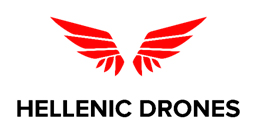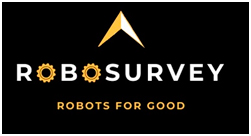CompoDeep
Partners: CES Works SAS (France) & Compoxi (Spain)
The CompoDeep project lead by CES Works (France) and Compoxi (Spain) targets the ROVs market (Remotely Operated Vehicles) and especially Heavy Work-Class for Oil & Gas, Mining or Science applications (hereinafter 'WCROV'). CompoDeep aims to pre-validate the design of a kit of standardized structural elements in composite materials allowing the vehicles’ infrastructure to be made / modified / replaced, onboard. The demonstrator will be equipped with an embedded instrumentation and validated through a campaign of tests subcontracted to IFREMER in a hyperbaric chamber up to 600 bars before and after impact. This step will enable the integration of these different technological bricks to be validated on the future generations of WCROVs developed worldwide and more generally into structures used in harsh environments.
HECTOR
Partners: Artemis Agraia Symvouleytiki S.A \ Hellenic Drones (Greece) & RoboSurvey Ltd. (Greece) & ACCENT PRO 2000 S.R.L. (Romania)
The HECTOR project aims to create the first-ever fully autonomous solution for inspections of ship confined spaces relying on a drone that collects visual and ultrasonic data. The HECTOR project significantly pushes the boundaries in the fields of robotics, Artificial Intelligence, and Condition-Based Maintenance which contributes significantly to the Digital Transition of the shipping industry. Also, by considering the fact that UAV-based inspections are fully recognised and supported by the International Association of Classification Societies (IACS), HECTOR is fully aligned with smart shipyard activities that aim at the development of advanced remote and predictive maintenance techniques.
The developed solution will be provided as a product to numerous service providers or shipping companies that are looking for an in-situ inspection method to enable them to reduce manning and maintenance costs, in opposition to the current practice followed, which causes high costs in terms of labor and ship downtime. The consortium partners aim to promote technological solutions to automate processes and increase the efficiency of operations. The project's product will allow the consortium partners to expand the spectrum of their services also to other markets where the unmanned inspection of confined spaces is considered a significant innovation, thus aiming to have a significant economic impact.





